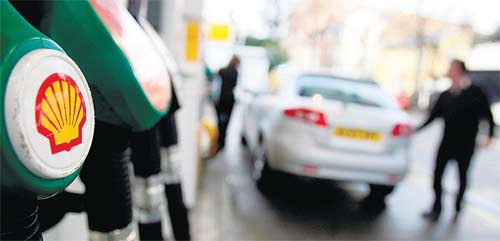A lot more mileage is left in the diesel vs petrol debate
Julian Knight finds fuel efficiency doesn't always mean low cost

In a little over a week's time, thousands of Britons will become the proud owners of a brand new 58-registration car. But in these days of the credit crunch and record-high oil prices, the decision to buy a new car is made as much with the head as with the heart.
No wonder, therefore, that fuel efficiency has become essential. And this is where a new generation of cleaner diesel engines is meant to offer a partial solution.
"Diesel engines are around 15 to 20 per cent more fuel efficient than standard petrol ones," says Luke Bosdett, spokesman for the AA. "It can make a huge difference to get 60 or 65 miles per gallon rather than 45 or 50."
However, there is a price to be paid for going diesel. The AA estimates that, depending on the size of the vehicle, the purchase price will be between £300 and £1,500 higher than for the same model fitted with a standard petrol engine. Generally, the bigger the car, the higher the price differential.
Up until recently, from a purely pounds, shillings and pence point of view, the calculation motorists use to have to make was whether they could cover the higher initial costs of diesel through savings at the pump. In short, the more miles you drove each year, the more you would benefit from the greater fuel efficiency of diesel.
But the dramatic rise in oil prices over the past year has thrown a spanner into these works and makes the job of calculating whether it's cheaper to go with diesel or petrol a whole lot more difficult.
"Not too long ago," says Mr Bosdett, "a gallon of diesel was around 5p more expensive than unleaded petrol. But with demand for diesel from the developing world, particularly South America, the costs at the pump have risen even higher than for standard petrol."
According to the AA's latest calculations, the average litre of diesel costs 124.44p, compared with 112.50p for unleaded petrol.
As a result, the number of miles that a motorist needs to cover each year to make diesel work financially has increased dramatically. "We use to say that if you did 20-25,000 miles a year, then diesel would work out cheaper," continues Mr Bosdett. "However, with the moves in oil prices, this has gone up to 40,000 or even 50,000 with some models of bigger car."
Just to put that into context, the average UK motorist is estimated to cover around 10,000 miles a year. Despite this, diesel is more popular than ever – not just among high-mileage company car users, who have in the past formed a large part of the market, but also with private individuals.
"The number of new diesel cars being registered grew by 7.3 per cent last year," says Sara Lee from the Society of Motor Manufacturers and Traders. "They account for 43 per cent of the total market. There has been a dash for diesel as people want the greater fuel efficiency, and it has shrugged off the old image of being noisy and polluting."
In fact, in many cases, the latest generation of "green" diesel cars actually emit lower levels of CO2 than their petrol counterparts, adds Ms Lee.
But Mr Bosdett puts the renewed popularity of diesel down to "consumers not doing the sums properly". Nevertheless, he holds out some hope that with a relative degree of calm returning to international oil markets of late, the price differential at the pumps between petrol and diesel will soon narrow, making diesel a more sensible choice for drivers who clock up average mileage.
However, Nick Van Der Vell of the UK Petroleum Industry Association is less bullish. He says the underlying reason diesel cars are making less sense financially is the Government's tax policy: "When you look around Europe, we are one of the few countries that taxes diesel exactly the same as petrol. Other countries, such as France and Spain, tax diesel far less, making it a more cost-effective choice."
Subscribe to Independent Premium to bookmark this article
Want to bookmark your favourite articles and stories to read or reference later? Start your Independent Premium subscription today.

Join our commenting forum
Join thought-provoking conversations, follow other Independent readers and see their replies